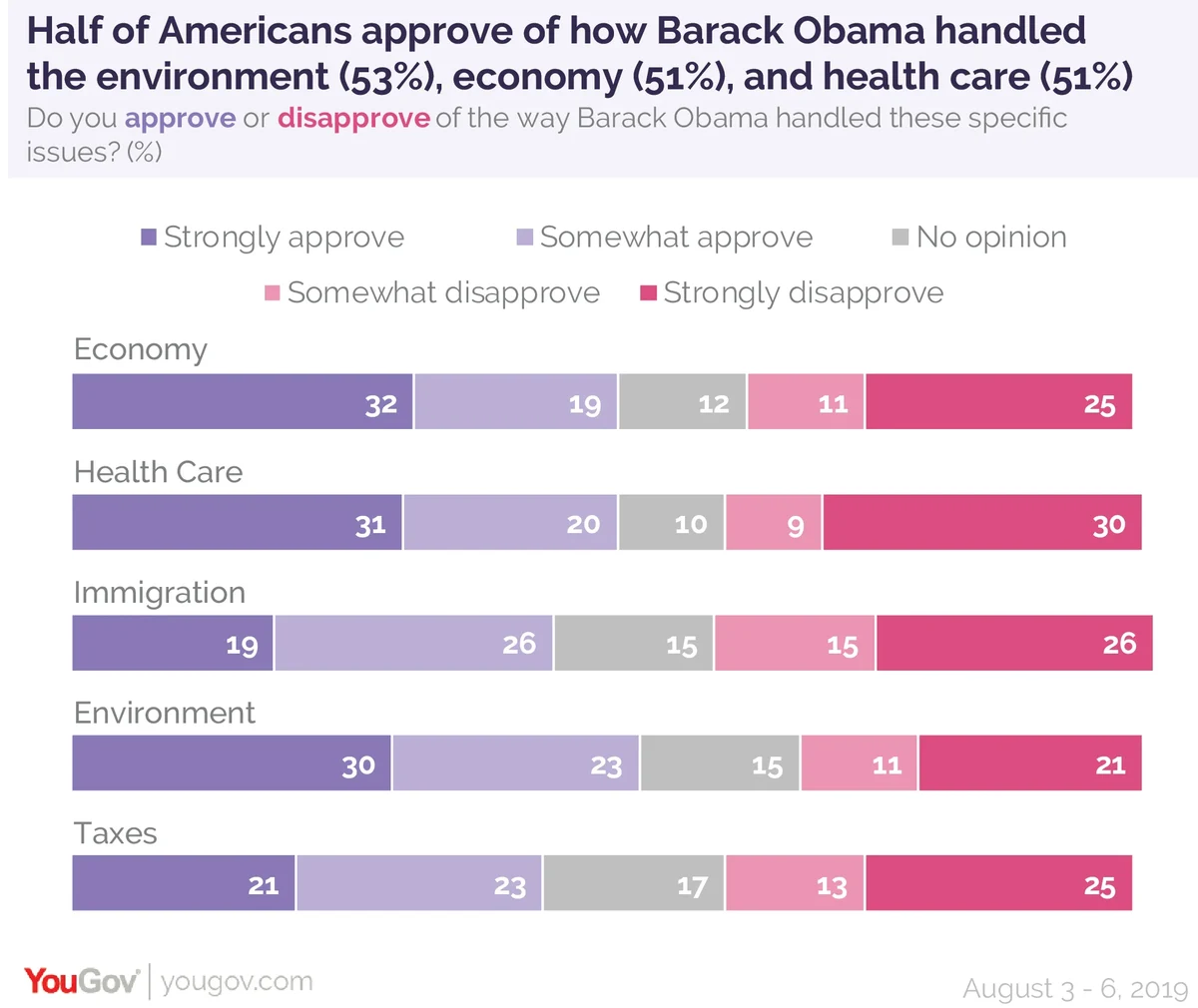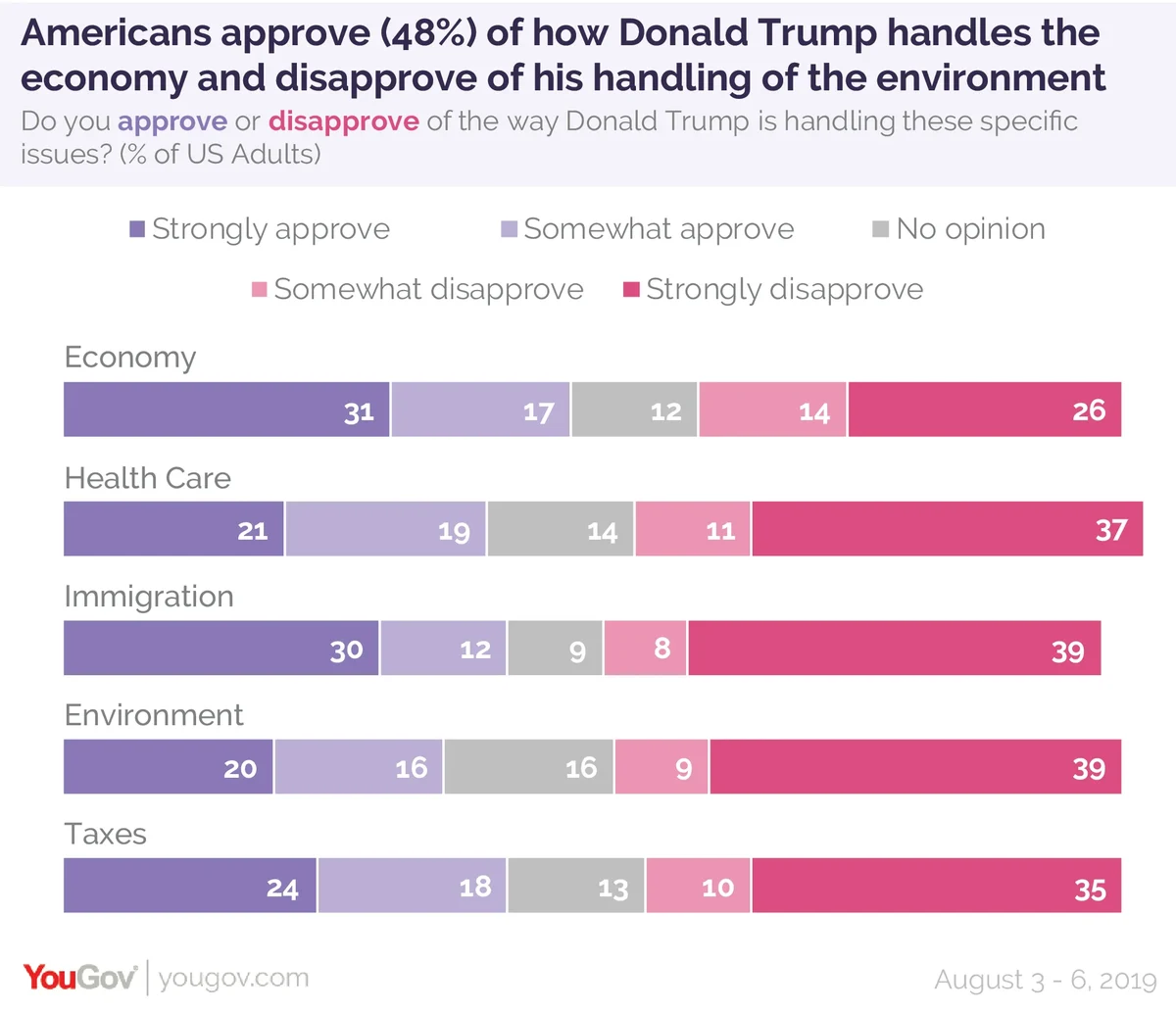What does America want with its health care system? While the Trump Administration pursues legal strategies to weaken and repeal the Affordable Care Act, and Democratic presidential candidates argue over a public option, Medicare for all, and the possible elimination of private insurance the American public in the latest Economist/YouGov Poll gives Obamacare support, though by only a slim margin.
But there are now other options. Even though more Democrats like Obamacare, half the country and nearly three-quarters of Democrats favor what’s known as Medicare for All. The policy is now part of most leading Democratic presidential candidates’ proposals (five candidates co-sponsored the Medicare for All Act in the Senate), and it is especially popular with those under the age of 45: More than twice as many adults between 18 and 44 support Medicare for All than oppose it. While nearly two out of three of all Republicans oppose Medicare for all, younger Republicans support it, 47% to 41%.
Current Medicare beneficiaries don’t seem all that happy about sharing Medicare with younger adults. Majorities of all those 65 and older, as well as those who now receive Medicare benefits oppose Medicare for all. Older Democrats are different: three-quarters of them would favor Medicare expansion.
It’s striking to see how Medicare has affected seniors’ health care. Nearly all (97%) of poll respondents 65 and older say they have health insurance. Among all adults, 80% know they have health insurance, but that drops to just two-thirds of those under 45.
Some seniors still have coverage through their spouse’s or their own employer, 78% of them credit Medicare for their insurance coverage, but half of those 65 and older know what it is like to go without coverage, about the same share as American adults overall.
Former President Barack Obama, who has been out of office for more than two years, is more popular than the current president. Obama gets more positive evaluations and is more liked than President Donald Trump. Healthcare is one example. More than half (51%) approve of Obama’s handling of this issue, 11 points higher than Trump’s approval rating on the issue.

That’s also the case most measures of presidential evaluations. Even though Trump’s greatest success may be the state of the economy (his highest ratings comes on this issue), the public’s current assessment of Obama’s handling of the economy is even higher.

Some of the difference is due to party distributions. More people identify as Democrats than Republicans (and Republicans and Democrats have very different opinions of the two presidents). However, Obama scores better with political independents than Trump does on his overall rating, and on healthcare. There is not much difference between the two among independents in other issue areas.
Obama does much better than Trump when it comes to personal characteristics, too.
A majority of 52 percent say Obama is honest and trustworthy, something only one-third believes about Trump. Half call Trump a strong leader, but even more – 59 percent -- say that about Obama. Two-thirds of Americans like Obama as a person – at least somewhat. In response to a slightly different question, only half that percentage said they liked Trump as a person.
Nearly half the public (47%) believes Obama will go down in history as a better than average or a great president (28 percent think he will be regarded as below average or poor). There were times while Obama was in office that the public thought worse of him: in 2010, less than a third said he would be regarded as above average by history, while 41 percent said he would be thought of as below average or poor. There also has been a slight improvement from how the public looked at Obama as he neared the end of his time in office. Then, 34 percent said he would be regarded as below average or poor.
There is no clear successor to Obama in the Democratic field. The largest share of Democratic primary voters, asked which current candidate is most like Obama, name his vice president, Joe Biden. But less than a quarter choose Biden.
One in 10 choose, South Bend Mayor Pete Buttigieg, who is one of the youngest candidates and 14 percent name either California Senator Kamala Harris or New Jersey Senator Cory Booker, who, like Obama, are black.
See the full toplines and tables results from this week's Economist/YouGov poll.
Image: Getty










